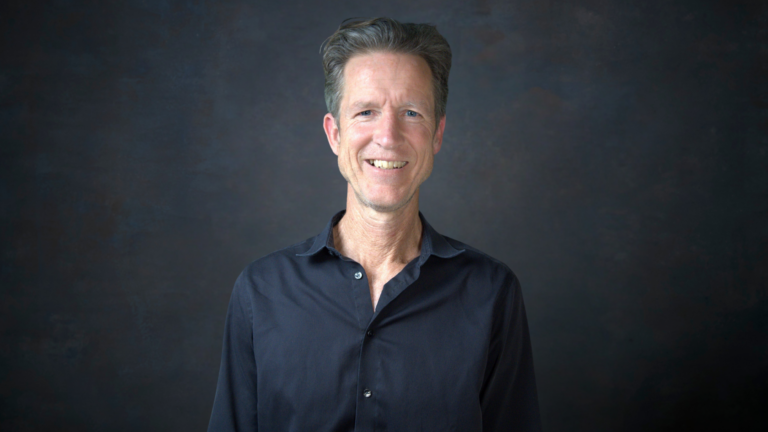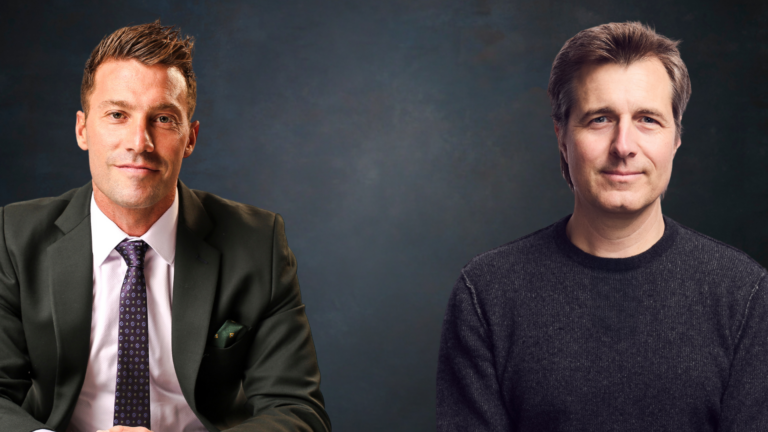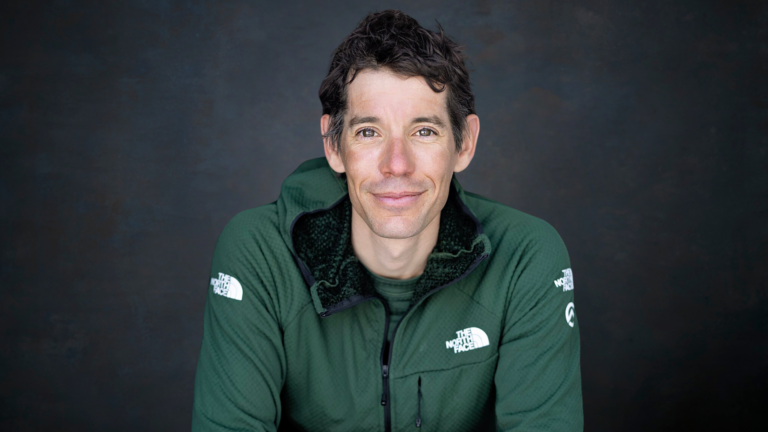This week’s conversation is with Dr. Katy Milkman, a behavioral scientist and professor at the Wharton School at the University of Pennsylvania.
Over the course of her career, she has worked with or advised dozens of organizations on how to encourage positive change, including Google, the U.S. Department of Defense, the American Red Cross, and Morningstar.
Her research is regularly featured by major media outlets such as The New York Times, The Wall Street Journal, and NPR.
She currently codirects the Behavior Change for Good Initiative at the University of Pennsylvania and has a new book out titled, How to Change: The Science of Getting from Where You Are to Where You Want to Be.
And that’s why I wanted to speak with Katy… to better understand the research around behavior change.
How do people change, what are some things that get in the way, and what are some ways to amplify the rate of change?
“We actually do much better in terms of creating long-term behavior change if we find ways to make the thing that’s good for you, more fun and inherently enjoyable. That’s a major lesson to me.”
In This Episode:
What was childhood like?
When I was about 10, my parents sort of noticed that I was quite good at tennis and really liked it, and started helping me develop into a pretty serious competitive tennis player. That was also a major part of my childhood, was trying to advance as far as I could in national tournaments and develop my skills on the tennis court as much as I could. The goal was never for me to be a professional player. It was always, if I could play division one tennis in college and have that experience, everybody sort of felt like that would be great. I thought that would be great fun. It felt like it might open doors to go to a university I wouldn’t otherwise get into. Because I was a good student, but not a great student. So tennis felt like maybe it would be my ticket to get into a great school. Also, really, I liked the physical activity. I was a very energetic person, so it helped keep me balanced. That was kind of what my childhood was like.
What’s the hardest thing she’s had to change?
When I went to college, I played division one tennis, and then I decided about halfway through to drop off the team, to quit the team, so I could focus more of my time and energy on academics because I was falling in love. Which makes sense, given where I ended up. I felt like I wasn’t giving it my all if I was splitting my time. But that was a really hard change. I mean, it wasn’t hard to call … Well, actually it was hard to call the coach and tell her I was not going to play anymore. That was hard. But what was harder was maintaining my identity or figuring out what my new identity was going to be. I’d been an athlete for my whole sort of adult life. It was a short adult life at that point, but it felt like this huge deal to make that shift and find who I was going to be and also how I’d stay balanced. Because it wasn’t just an identity to be a scholar athlete, it was also how I spent my time and it was how I kept myself happy and sane. So figuring out what would be the new me, how I would find balance in the post tennis days, that was a big change I struggled with.
How do people change?
The timing has to be right. That’s one of the things my research has shown is really important. There are moments in our lives that feel more conducive to change. I call them fresh starts. There’s your 30s, your 40s. There’s a certain job. There’s all these different moments. Whenever a new chapter opens, we feel like we have a new beginning and a fresh start. That causes us to step back and think bigger picture about our lives and our goals and what we want to accomplish. It also makes us feel like we have a clean slate. There was something we wanted to do or achieve that we failed to do last year say, and then along comes this fresh start. The start of a new year or even a new week, by the way, can be a fresh start. Or on the celebration of a birthday, a move to a new home or a new job. We feel like that was the old me. This is the new me, and the new me can do it. That increased optimism is one of the things that can propel us to change.
Why do fresh starts inspire optimism?
Optimism comes at these fresh start moments. That we might become pessimistic and feel like we can’t do it, but we seem to be wired to have a boost of optimism and a sense that maybe we can that’s greater when we consent the start of a new chapter and we can put whatever has not been going well aside on a shelf and bookend it and say, “That period is over. Maybe this period “will be fine.” We see that people are significantly more likely to set goals on goal setting websites around Mondays and the beginning of a new year and after birthdays and other fresh start dates like the start of the month or following a holiday that feels like a start to people. Like Labor Day, for instance. Those moments give us that optimism.
What are some best practices to help stay the course?
One of my favorite lessons is something that is going to feel so obvious when I say it, but is shockingly under appreciated. That is that when most people start something new, like a new workout routine and they have a big goal in mind, they try to do it in the most effective, efficient way possible. If I’m new to the gym, I’m like, “What’s the optimal calorie burning machine?” I that’s my goal, is to burn calories. They’re like, “Okay, I’m going to do the StairMaster. That’s the one.” I’m not actually sure it’s the StairMaster, so don’t quote me on that exactly. But they go for something really tough. Very few people do the opposite calculation, which is, what am I going to enjoy most? What am I going to have the most fun doing so that I’ll come back because it won’t be a painful experience and I’m going to want to keep doing it? But it turns out if you do the other and if you actually pick the thing that’s most fun, like the Zumba class, you’re much more likely to stick to it. You’re going to persist longer. That’s because even though doing the effective and efficient thing might seem like the optimizer’s solution, the way that we actually decide what we’ll do on a given day is that we focus a lot on immediate experience. If it’s not instantly gratifying, if it’s no fun, if we dread it, we procrastinate. We actually do much better in terms of creating long-term behavior change if we find ways to make the thing that’s good for you and that you have a big goal to achieve more of, fun and inherently enjoyable. That’s a major lesson to me. Is rather than looking for the most effective way to achieve that goal, find a way to do it that you’ll enjoy because then you’ll keep at it.
Why little tricks can make a big difference
The big barrier that often prevents us from making changes, whatever the changes we want to make, it’s not enjoyable in the moment and that’s going to keep us from actually sticking to it and persisting. There are these little tricks we can find…from just looking for a more fun form of the activity you need to do, to linking it with something enjoyable or gamification that can help create durable change. These strategies to make something fun, work if you’re bought in intrinsically already and just trying to figure out how to make it work for you.
When external rewards don’t work
The Magic Circle. That’s a term in game land for buying in. If you’re playing monopoly with a kid and the kid doesn’t play by any of the rules, they just steal the money from the bank, they haven’t entered the magic circle. They’re just futzing with you, and it’s not that fun. When it feels like someone else is pushing us into these activities, when gamification is imposed by someone else to achieve some other objective, it’s not fun. We don’t enter the magic circle. We aren’t intrinsically motivated. It doesn’t have an effect. But when it’s something we use to motivate ourselves in a domain where we’re already intrinsically motivated, it can be really effective.
The emergency reserve strategy for setting high and hard goals
If you miss a goal, it can be incredibly de-motivating. There’s this whole literature on the, what-the-hell-effect. You miss your goal, you throw up your hands, you give up, what the hell, and you walk away. How can you get that high, hard goal that’s motivating without the risk of the, what-the-hell-effect? Try to do it seven days a week, but you get two emergency reserves. If you absolutely can’t do it, you can pull out that emergency card and say, I got a free pass. It doesn’t take you off track for the week.” You’re still striving for this really tough thing, but if you slip, you’re not as likely to have the what-the-hell-effect. Notice it’s exactly the same as trying for five days a week. It’s the same goal. But by saying it’s seven and you only use those emergency reserves in a true emergency, people keep pushing harder.



